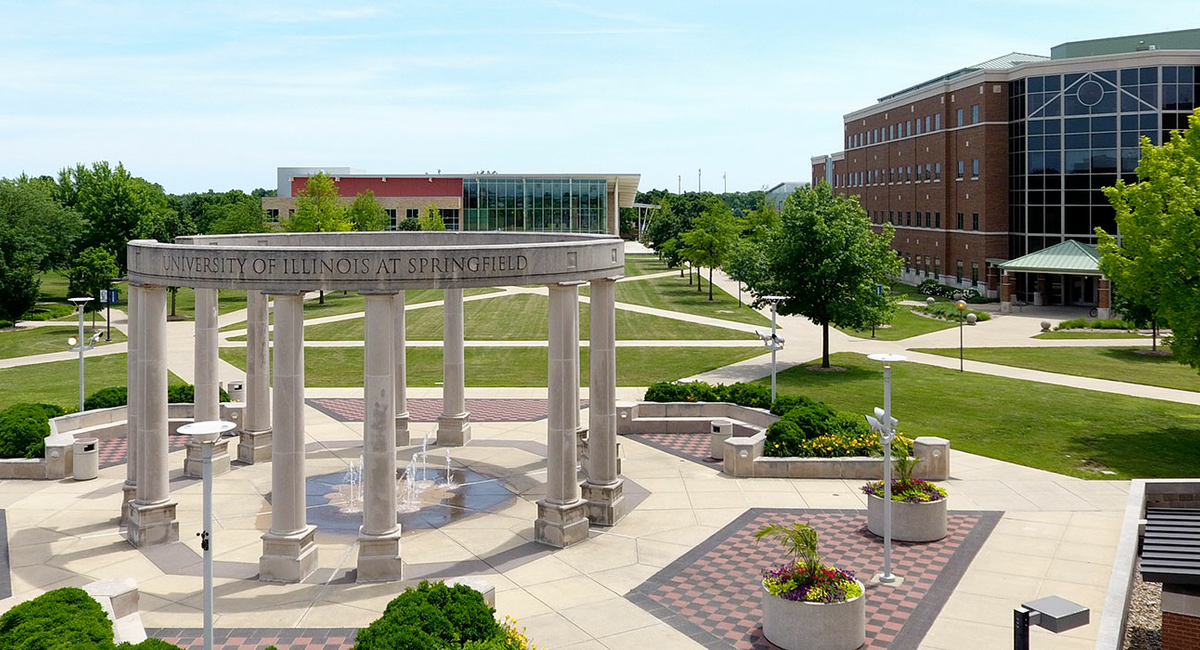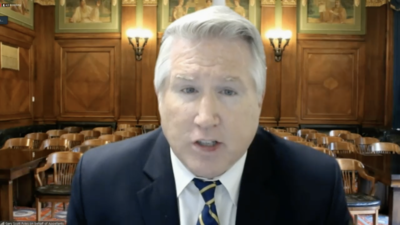


My name is Scott Pyles, and I am a graduate student in the master’s program in Political Science at UIS. I am an attorney with the Will County State’s Attorney’s Office and I recently argued a case in front of the Illinois Supreme Court. The issue before the Court involved the statutory interpretation of the Illinois Property Tax code. The dispute regarded whether a claim for a refund of approximately 6.3 million dollars in property taxes to a landowner who had their property condemned. Although I have argued before the Illinois Supreme Court on a prior occasion, the prospect of arguing a case involving millions of dollars was intriguing to say the least.
To get to that point, it involved a lot of research and writing. Prior to getting to the Illinois Supreme Court, the case is argued and worked up in both the trial and appellate courts. Writing persuasively is important aspect to process. I have to say that despite being an attorney for over 30 years (almost all that time in private practice), that my work at UIS has made me a better persuasive writer. Just getting a case before the Court is a challenge as the Court accepts very few cases to hear and that is only based on a good written petition. As the appellant in the case, I was required to write two separate briefs explaining why my client (in this case the County Collector) should prevail. After the briefs are submitted, you are then able to present your case orally to the Court.
During that argument, the justices can ask questions regarding points raised in your case and your responses can often be important to the outcome. Prior to the argument, the justices review the briefs submitted in preparation for the argument and quite often may challenge weak points in your case. So, preparation is key. In preparing my case, I wrote an outline of my main argument and then orally presented it to colleagues in the office for both clarity and timing. I also worked in coordination with co-counsel in the case as well. So, working in a collaborative environment is essential to success.
Arguments before the Court are time limited, so you must cover your main points allowing some time for questions from the Court. As the appellant, I also am allowed to rebut the other side’s argument as I have the burden of persuasion. The point is that organizing your argument and making it clear for the person you are attempting to persuade is important. Any attorney would be excited to present a case to the State’s highest court. Unfortunately, a Covid-19 outbreak at the Court limited the presentation to Zoom which also has its challenges. Despite that limitation, the chance to present a case where your argument can be dissected in a public forum is exciting event.
Once the Court hears the argument, it then recesses to write the decision in the case which can take months until you get a result. Once you get the opinion, you will have helped shape Illinois law for future cases as the Illinois Supreme is the final say on the law in Illinois. For those interested the briefs in the case, they can be found at the Illinois Supreme Court’s website Case No. 128252 MB Financial Bank, N.A., etc., et al., Appellees, v. Tim Brophy, etc., et al., Appellants. Appeal, Appellate Court, Third District.


